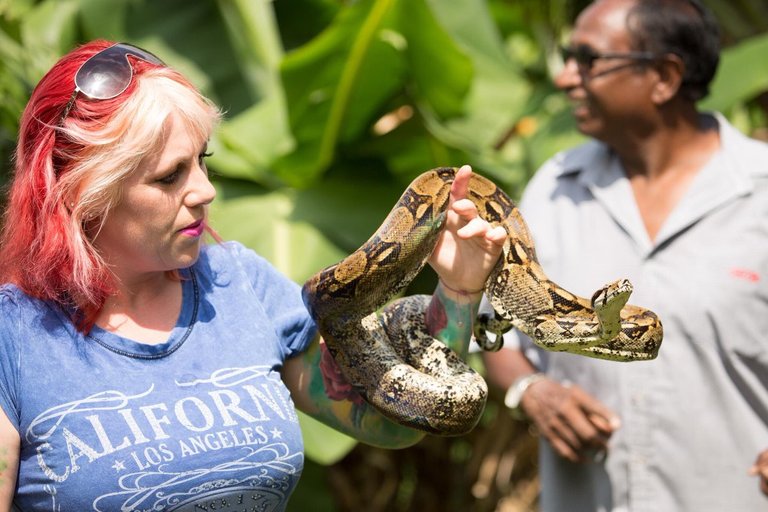
In light of the fantasies that encompass the snake, it is hard to speak serenely about this subject of general wellbeing. Nonetheless, the quantity of passings because of absence of antibody is expanding.
One million snake chomps every year in sub-Saharan Africa, in the vicinity of 25,000 and 30,000 passings, and the same number of debilitating sequelae. These pathologies, which for the most part influence rustic and poor populaces, are still inadequately comprehended and ineffectively treated today. Disturbing numbers that shed light on a torment that executes more than dengue fever, transmitted by mosquitoes (20,000 passings for every year) and numerous other catastrophic events.
Why are we discussing it today?
Since June 2016, Sanofi Pasteur's most recent Fav-Africa antibody serums have lapsed: the French research facility halted generation in 2010 because of a drop popular and high expenses. The cost was restrictive for the populaces worried (around 100 euros for every measurement) and the serum, albeit thought about compelling, was not adjusted to the circumstance since it must be kept cool, in a nation where the entrance rate to the power is under 10%.
In February 2018, the World Health Organization delivered another, fairly disturbing, situation report, attracting consideration regarding the other physical and mental outcomes of snakebites. "The chomps of venomous snakes cause restorative crises. They can prompt extreme loss of motion that can square breathing, blood issue that can prompt deadly hemorrhages, irreversible kidney disappointment and serious neighborhood tissue devastation that can prompt perpetual handicap and appendage removal. As a result of a lower weight, their outcomes are more serious in kids than in grown-ups, "caution the report's creators. Since that is the place the rub,
A scourge that affects the poor and the countryside
The other urgent aspect of the question concerns the profile of the populations directly affected by this scourge. As former United Nations Secretary-General Kofi Annan points out, in a column published in late June in the French newspaper Le Monde"Snake bite is essentially a disease of the poor, affecting mainly people living in some of the most rural communities in sub-Saharan Africa, Asia, Oceania and Latin America. The Nobel Peace Prize has been informed of the situation by a Ghanaian doctor. He explains: "Small farmers, their families, shepherds and displaced people are particularly vulnerable. These groups often lack the most basic protections, such as snake-proof shoes or mosquito nets. Even if the victim survives, she may be unable to support her family. As a result, children are often sent to work, instead of going to school, and relatives are forced to share their few belongings with the families affected. "
Especially in sub-Saharan Africa, bite victims usually turn to the traditional healers. Indeed, the snake occupies a place of choice in African mythologies. From the myth of the creation of the Supreme Being to the cult of Mamie Wata, or the creation of several empires from Mali to Benin, through the Genii in Senegal. What is important to remember is that being bitten by a snake in Africa is a very bad sign. This does not necessarily encourage the political actors impregnated by its myths to take care of this subject of public health, preferring to ignore it.
The real reasons for the increase in the number of victims
In any case, this rostrum written in 2018 is reminiscent of the fact that, for three years, the World Health Organization as well as specialists are sounding the alarm against the depletion of antivenom treatment stocks produced by Sanofi-Pasteur. By taking this decision, Sanofi Pasteur laboratory has taken the risk of endangering tens of thousands of people around the world? "Tens of thousands of people will continue to die from snakebites unless the global health community takes immediate action to ensure the production of anti-cancer treatment and serum," MSF warned in 2016. in a press release on the occasion of a symposium on tropical medicine.
Laboratory response? "This situation, which can be considered a market failure, clearly demonstrates how price pressure leads to choices at the expense of sustainability and reliability of supply and, potentially, quality. with an impact on public health, "said Alain Bernal, his spokesperson. In other words, Sanofi Patseur could not line up.
The laboratory explains, among other things, that it has long sensitized the international authorities on this problem, to no avail. He therefore reluctantly undertook to focus on the production of an anti-rabies drug (for rabies control) for which demand is growing and can be planned.
Work on lasting solutions
One of the solutions would be to make the antivenoms more available. Indeed, quality serums are the only effective treatment to prevent or eliminate most of the toxic effects of snake bites. Here too, Sanofi Pasteur is expected in the field, the international health organizations were waiting for them to make available the basic substances needed for the production of Fav-Africa. But it is still necessary to find the production capacity to refine this product with anti-venom that will eventually replace Fav-Africa.
Nothing is less certain, even though pressure is growing around the authorities, especially with the decision of the World Health Assembly (the most important decision-making body of the World Health Organization) to call for immediate and effective measures to deal with the snake bite crisis. This follows the World Health Organization's 2017 decision to add snakebite to the list of tropical diseases and to create a working group to develop a comprehensive roadmap.
There is hope, however. Indeed, sub-Saharan Africa represents a potential market estimated at more than one million serums per year, says Jean-Philippe Chippaux, researcher at the Institute for Research for Development (IRD), based in Benin. It could represent 40 million euros annually, but can only work if the final sales price of a dose of serum is lowered considerably.
But again, states, local governments and businesses need to contribute a lot of data. The battle of tomorrow is also about deep knowledge of the problem.

